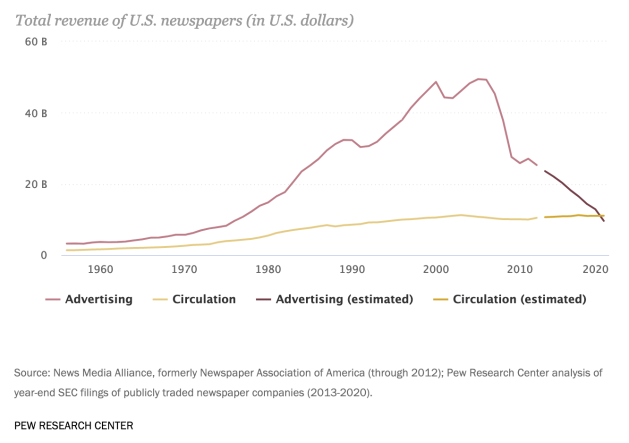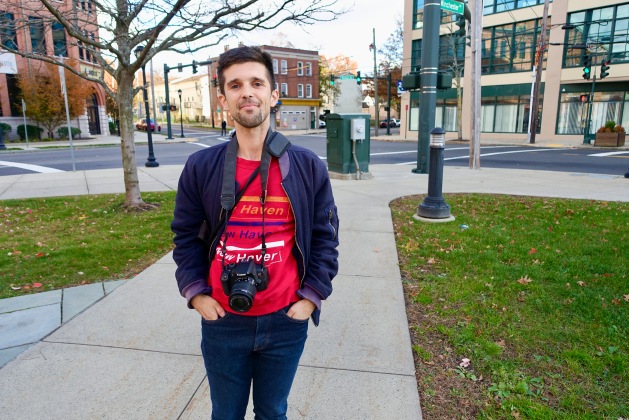
Going, going, gone? Photo (cc) 2015 by J.C. Burns.
Anyone who was around 15 or 20 years ago would be surprised at the persistence of print. Back when newspapers started moving to the web, it seemed likely that print editions would soon become part of the past.
But as visions of lucrative interactive advertising gave way to the realities of Craigslist, Google and Facebook, print emerged as a way to slow down the decline of the newspaper business. The value of print advertising, though on the wane, held up far better than digital ads. And you could charge a lot for home delivery. Even as digitally focused a newspaper as The Boston Globe continues to earn more than half its revenues from the print edition.
Now that may be changing. For years, media observers have been predicting that daily print would eventually disappear. Under this scenario, most papers would continue with one big weekend print edition while switching to digital-only for the rest of the week. In 2019, the Arkansas Democrat-Gazette did just that, giving their subscribers iPads so they could continue to read the paper.
The next major news outlet to make that move may be The Atlanta Journal-Constitution, according to bloggers Maria Saporta and John Ruch. The move may be announced at a staff meeting this Thursday. In a staff memo, editor Kevin Riley said:
It’s been a while since we’ve had an in-person newsroom staff meeting, but don’t worry, I promise there won’t be any shoes dropping at this meeting. Instead, I would like to get together and share exciting information as we plan for our future. The leadership team hopes you leave the meeting feeling as optimistic as we do about our path forward — a path that allows us to continue to produce our meaningful work for a long time to come.
The challenges to cutting back to a weekly print edition are several. You need to find people who are willing to deliver the paper once a week, which represents a considerable loss of income. There’s a lot of down time for the presses, calling into question their continued viability. (The AJC outsourced its printing to The Times of Gainesville in 2021.) The paper loses some of its visibility, making it more difficult to promote.
But there are real benefits, too, which is why the AJC may be doing it. According to paid circulation numbers that the paper reported to the Alliance for Audited Media earlier this year, print had fallen to just 39,917 on Monday, the lowest day of the week, and to 94,786 on Sunday. That shows the benefits of continuing with a weekend print edition. Overall circulation was 82,776 on Monday, 137,637 on Sunday.

Click here to access original
Advertising, which once accounted for 80% of a typical newspaper’s revenue, has been in an industry-wide downward spiral for many years — from a peak of nearly $49.5 billion in 2005 to an estimated $9.6 million billion in 2020, according to the Pew Research Center. Reader revenue, meanwhile, has been slowly rising, and now accounts for slightly more than half of all revenues.
In such an environment, it makes sense to cut back on print. Digital subscriptions don’t bring as much money as print, but the expenses are far lower. If The Atlanta Journal-Constitution succeeds, expect to see a lot more papers follow.




